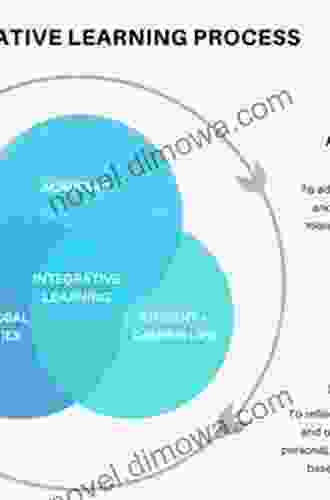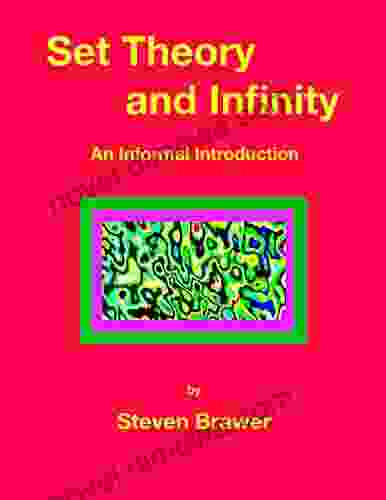International Relations: A Comprehensive Guide to Foreign Policy

In a world that is increasingly interconnected, understanding international relations and foreign policy is more important than ever before. This comprehensive guide provides a clear and concise overview of the key concepts, theories, and practices of international relations, helping you to make sense of the complex world of global affairs.
5 out of 5
| Language | : | English |
| File size | : | 570 KB |
| Text-to-Speech | : | Enabled |
| Screen Reader | : | Supported |
| Enhanced typesetting | : | Enabled |
| Print length | : | 810 pages |
| Lending | : | Enabled |
The book begins with a brief history of diplomacy, from its origins in ancient Greece to the modern era. It then examines the different theories of international relations, from realism to liberalism to constructivism. These theories provide different ways of understanding how states interact with each other, and they help us to predict and explain international behavior.
The book also covers the key institutions of international relations, such as the United Nations, the World Bank, and the International Monetary Fund. These institutions play a vital role in promoting cooperation between states and in addressing global challenges such as climate change and poverty.
Finally, the book discusses the challenges of globalization. Globalization has led to increased interdependence between states, but it has also created new challenges, such as terrorism, financial crises, and environmental degradation. The book provides a balanced assessment of the benefits and challenges of globalization, and it offers insights into how we can manage these challenges in the years to come.
This comprehensive guide to international relations and foreign policy is an essential resource for students, professionals, and anyone who wants to understand the complex world of global affairs.
Table of Contents
- Chapter 1: The History of Diplomacy
- Chapter 2: The Theories of International Relations
- Chapter 3: The Institutions of International Relations
- Chapter 4: The Challenges of Globalization
Chapter 1: The History of Diplomacy
Diplomacy is the art of conducting negotiations between states. It has been practiced for centuries, and it has played a vital role in shaping the course of history. The history of diplomacy can be divided into three main periods: the ancient period, the medieval period, and the modern period.
The ancient period of diplomacy began in ancient Greece, where the city-states developed a system of diplomacy based on the exchange of ambassadors. This system was later adopted by the Roman Empire, which used diplomacy to maintain its vast empire.
The medieval period of diplomacy saw the rise of the Papacy as a major diplomatic player. The Pope mediated disputes between states and played a key role in the development of international law.
The modern period of diplomacy began in the 16th century with the rise of the nation-state. Diplomacy became increasingly important as states competed for power and influence. The development of new technologies, such as the printing press and the telegraph, made it easier for states to communicate with each other and to conduct negotiations.
Chapter 2: The Theories of International Relations
International relations scholars have developed a number of different theories to explain how states interact with each other. These theories can be divided into three main categories: realism, liberalism, and constructivism.
Realism is the oldest and most influential theory of international relations. Realists believe that the international system is anarchic, meaning that there is no central authority to enforce rules or laws. States are therefore forced to rely on their own power to protect their interests. Realists believe that states are rational actors who will always seek to maximize their power.
Liberalism is a more optimistic theory of international relations. Liberals believe that the international system is not necessarily anarchic, and that states can cooperate to achieve common goals. Liberals believe that states are not always rational actors, and that they can be influenced by factors such as ideology and culture.
Constructivism is a relatively new theory of international relations. Constructivists believe that the international system is socially constructed, meaning that it is shaped by the beliefs and norms of the states that participate in it. Constructivists believe that states are not simply rational actors, but that they are also shaped by their history, culture, and identity.
Chapter 3: The Institutions of International Relations
The institutions of international relations are the organizations and fora that states use to cooperate and negotiate with each other. These institutions include the United Nations, the World Bank, the International Monetary Fund, and the World Trade Organization.
The United Nations is the most important international organization in the world. It was founded in 1945 after World War II to prevent future wars and to promote international cooperation. The UN has a wide range of responsibilities, including peacekeeping, humanitarian aid, and development assistance.
The World Bank is an international financial institution that provides loans and grants to developing countries. The World Bank's mission is to reduce poverty and promote economic development.
The International Monetary Fund is an international financial institution that provides loans to countries that are experiencing financial difficulties. The IMF's mission is to promote global economic stability.
The World Trade Organization is an international organization that promotes free trade between countries. The WTO's mission is to reduce trade barriers and to promote economic growth.
Chapter 4: The Challenges of Globalization
Globalization is the process of increasing interconnectedness and interdependence between countries. Globalization has led to a number of benefits, such as increased trade and investment, but it has also created new challenges, such as terrorism, financial crises, and environmental degradation.
One of the biggest challenges of globalization is terrorism. Terrorism is the use of violence to achieve political goals. Terrorism can be carried out by individuals, groups, or states. Terrorism is a global problem that threatens the security of all nations.
Another challenge of globalization is financial crises. Financial crises can be caused by a number of factors, such as excessive debt, speculation, and financial instability. Financial crises can have a devastating impact on the global economy.
Environmental degradation is another challenge of globalization. Environmental degradation is the damage to the environment caused by human activities. Environmental degradation can take many forms, such as pollution, deforestation, and climate change. Environmental degradation is a global problem that threatens the health of the planet.
The challenges of globalization are complex and interconnected. There is no easy solution to these challenges, but we can work together to manage them and to create a more just and sustainable world.
Back to Top
5 out of 5
| Language | : | English |
| File size | : | 570 KB |
| Text-to-Speech | : | Enabled |
| Screen Reader | : | Supported |
| Enhanced typesetting | : | Enabled |
| Print length | : | 810 pages |
| Lending | : | Enabled |
Do you want to contribute by writing guest posts on this blog?
Please contact us and send us a resume of previous articles that you have written.
 Book
Book Novel
Novel Page
Page Chapter
Chapter Text
Text Story
Story Genre
Genre Reader
Reader Library
Library Paperback
Paperback E-book
E-book Magazine
Magazine Newspaper
Newspaper Paragraph
Paragraph Sentence
Sentence Bookmark
Bookmark Shelf
Shelf Glossary
Glossary Bibliography
Bibliography Foreword
Foreword Preface
Preface Synopsis
Synopsis Annotation
Annotation Footnote
Footnote Manuscript
Manuscript Scroll
Scroll Codex
Codex Tome
Tome Bestseller
Bestseller Classics
Classics Library card
Library card Narrative
Narrative Biography
Biography Autobiography
Autobiography Memoir
Memoir Reference
Reference Encyclopedia
Encyclopedia Rosie Whitehouse
Rosie Whitehouse Shari Popejoy
Shari Popejoy Robin Bennett
Robin Bennett Ryann Yeaman
Ryann Yeaman Rick Wood
Rick Wood Serena Pergola
Serena Pergola Janet Tashjian
Janet Tashjian Serena Lee
Serena Lee Rob Smyth
Rob Smyth Robbyn Smith Van Frankenhuyzen
Robbyn Smith Van Frankenhuyzen Troy Blappert
Troy Blappert Sarah Lamb
Sarah Lamb W R Benton
W R Benton Roji Abraham
Roji Abraham Sophia Lowell
Sophia Lowell Roger Mason
Roger Mason Roger Wilk
Roger Wilk Ruth Krauss
Ruth Krauss Simon Bird
Simon Bird Steve Mcgill
Steve Mcgill
Light bulbAdvertise smarter! Our strategic ad space ensures maximum exposure. Reserve your spot today!

 Frank ButlerUnequal Opportunity: A Riveting Examination of Racial Inequality and Social...
Frank ButlerUnequal Opportunity: A Riveting Examination of Racial Inequality and Social... Dwight BlairFollow ·11.2k
Dwight BlairFollow ·11.2k José SaramagoFollow ·15.1k
José SaramagoFollow ·15.1k Miguel de CervantesFollow ·2.9k
Miguel de CervantesFollow ·2.9k Mario Vargas LlosaFollow ·6.5k
Mario Vargas LlosaFollow ·6.5k George R.R. MartinFollow ·2.6k
George R.R. MartinFollow ·2.6k David BaldacciFollow ·10.9k
David BaldacciFollow ·10.9k Amir SimmonsFollow ·8.9k
Amir SimmonsFollow ·8.9k Albert CamusFollow ·8.8k
Albert CamusFollow ·8.8k

 Leo Mitchell
Leo MitchellRide the Waves with "Surfer Girl" by Tricia De Luna: A...
Prepare to be...

 William Faulkner
William FaulknerCecil Griffiths: The Exiled Olympic Champion
Cecil Griffiths was...

 Cortez Reed
Cortez ReedLilly Blue Iris Stanley Gene: A Captivating Literary...
Enter a Realm of...

 Art Mitchell
Art MitchellFrom Vision to Implementation: An Integrative Approach to...
Unleash the Power...

 William Powell
William PowellDiscover the Heartwarming Journey of a Grandfather and...
In a quaint little town nestled amidst...
5 out of 5
| Language | : | English |
| File size | : | 570 KB |
| Text-to-Speech | : | Enabled |
| Screen Reader | : | Supported |
| Enhanced typesetting | : | Enabled |
| Print length | : | 810 pages |
| Lending | : | Enabled |












